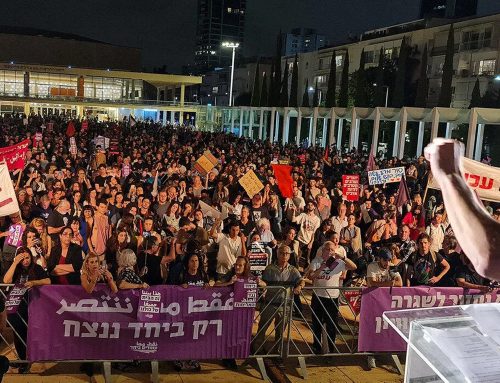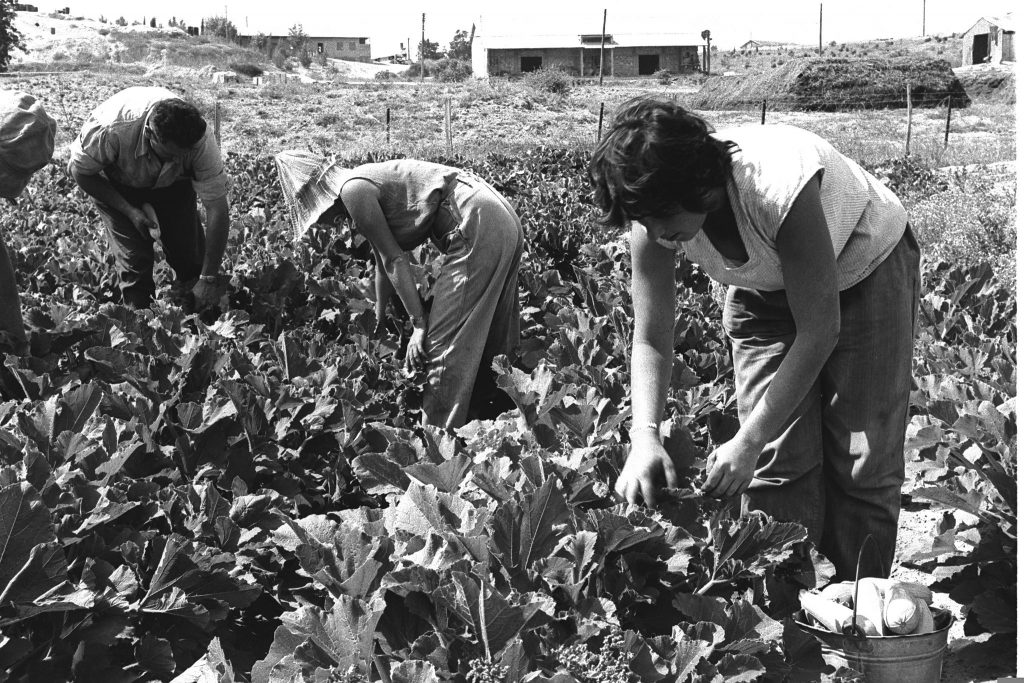
Kibbutz members gathering vegetables in the fields of the Kibbutz Zikim collective farm. 1956, Israel. Via the National Photo Collection of Israel.
By Hayim Katsman
The area where I live in Israel, the Western Negev (also known as the “Gaza envelope”), has been in the news frequently lately. For decades, the Western Negev was known for its agriculture and was a relatively peaceful and quiet area. This has changed since the Israeli evacuation of the Gaza strip in 2005 and the blockade it initiated on the Hamas regime in 2007.
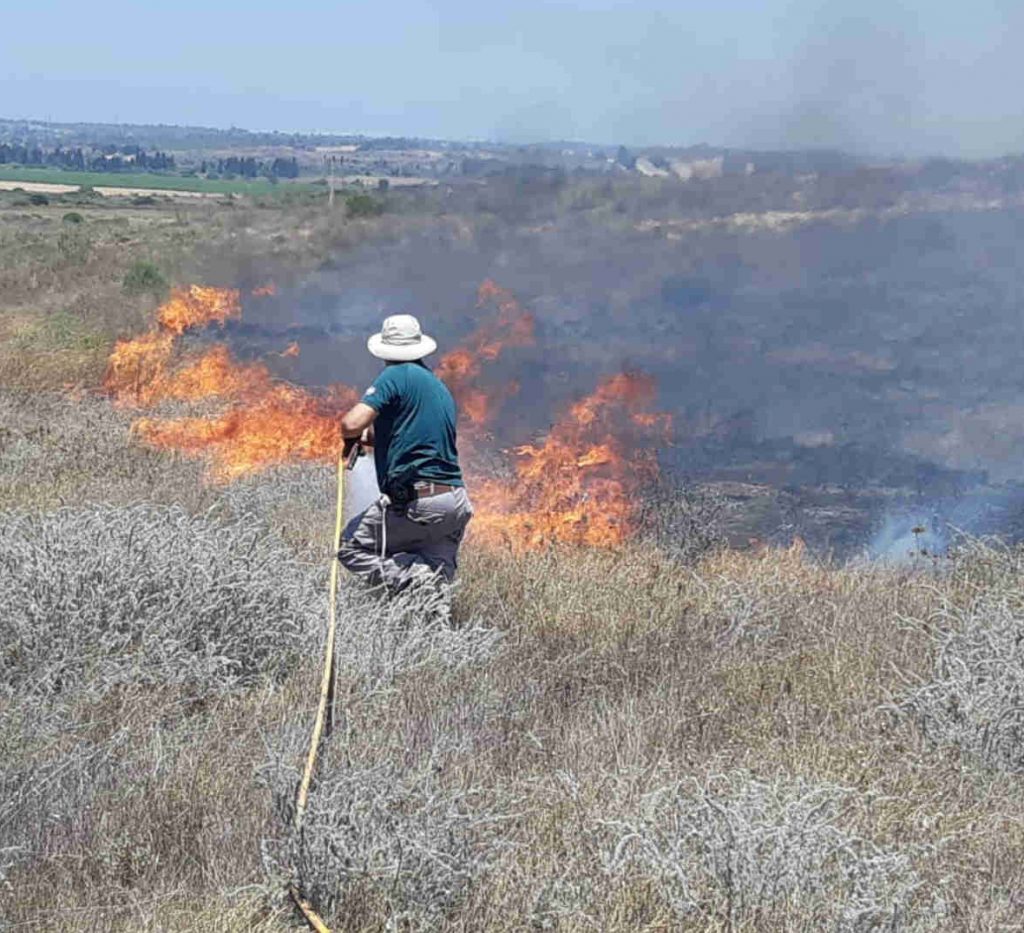
A fire caused by an incendiary balloon. Photo by Kobi Sofer.
Resisting the blockade, Hamas has started to use incendiary balloons and kites (here is a map documenting the thousands of incidents), which are extremely harmful for the agriculture, natural resources and wildlife in the area. Wheat, which is a common crop in the area, burns rapidly just before it is supposed to be harvested. Farmers this year were forced to harvest their crops early, which caused a significant financial loss.
Some politicians identified with the Israeli right advocate a stronger military response against the balloons, presenting themselves as concerned about farmers. However, governmental policies and regulations regarding agriculture initiated by these same right-wing governments have caused Israeli farmers financial losses that significantly exceed the losses caused by the incendiary balloons.
Why agriculture matters in Israel
Ever since the first waves of Jewish immigration came to Palestine in the late nineteenth century, Zionist movements saw great importance in the cultivation of the land and the creation of a self-sustaining economy. Jewish farming is what ultimately determined the borders of the state of Israel: To this day, agricultural lands are located in very close proximity to the Israeli borders and are perceived as representing Israeli sovereignty in those areas.
Agriculture contributes to the Israeli economy in many ways. The fact that Israel is a very small country means that land intended for agriculture is extremely limited. A significant portion of the Israeli state is a desert, with a constant shortage of water. To overcome these challenges, Israeli farmers have had to come up with creative ideas and technologies. Today, Israel’s agricultural industry is exporting agricultural solutions such as irrigation, water reclamation, and hydroponics to countries all over the world.
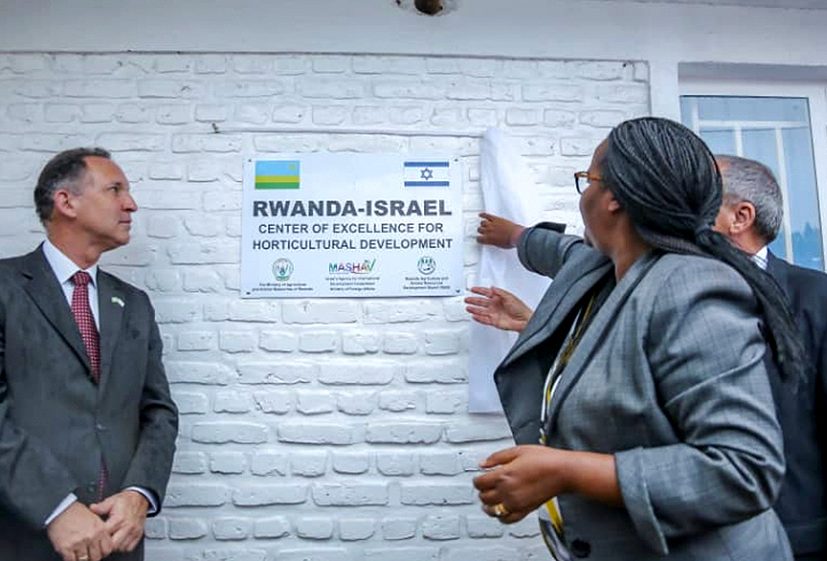
Ambassador Gil Haskel, head of MASHAV, inaugurates the new Center of Excellence for Horticultural Development in Kigali, Rwanda, with Rwanda’s Minister of Agriculture Gérardine Mukeshimana and other officials. Photo via The New Times.
Other than the financial benefits, exporting agricultural technologies helps build diplomatic relations with developing countries through MASHAV, the Agency for International Development Cooperation in Israel’s Ministry of Foreign Affairs. For example, just last April Israel opened an embassy in Rwanda, which has benefited from Mashav’s investments.
How government policies are hurting farmers
As a resident of the Western Negev for more than six years, I’ve came to know many farmers. Speaking to them, I sense that, despite the importance of agriculture to Israeli society and economy, they are feeling concern and even desperation about the future of agriculture in Israel. Over the past 20 years, the number of farmers growing vegetables in Israel has declined from around 10,000 to around 2,500. This decline is not coincidental but is rather caused by recent governmental policies and regulations that are burdening Israeli farmers.
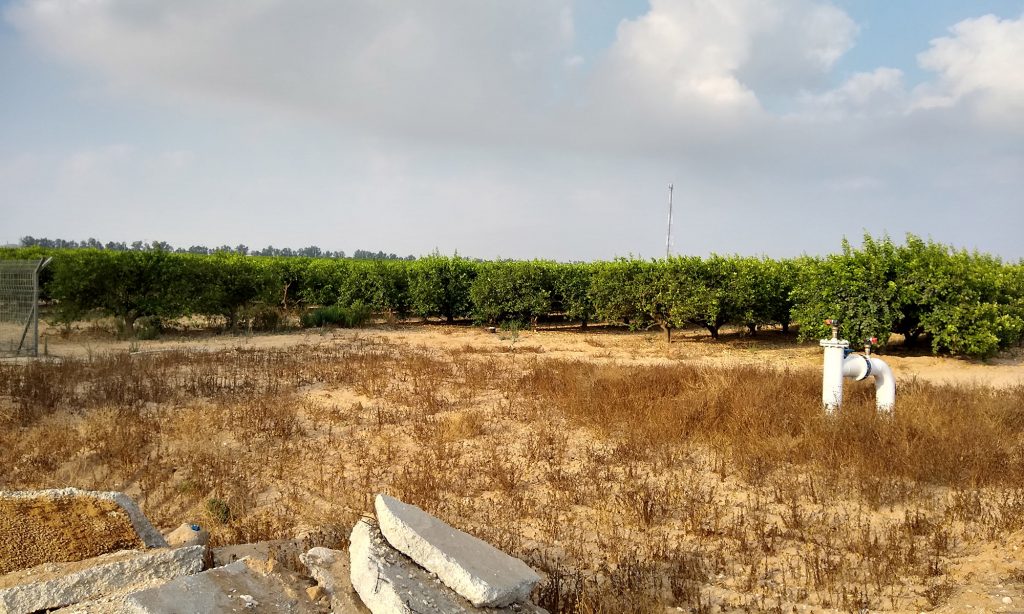
Lemon trees growing near Gaza.
Most importantly, farmers are hurt by the Israeli government’s frequent decisions to cancel tariffs on the import of certain produce. While this started approximately four years ago as a policy during periods of shortage, the government is now issuing these temporary orders more and more frequently. This policy of canceling tariffs, presented by politicians as an attempt to combat the rising cost of produce, is perceived by farmers as populist pandering and hypocritical.
First, they argue, the average annual expenditure on produce per capita in Israel is relatively low and amounts to approximately 2,000 NIS ($600). Moreover, there is no parallel subsidy to farmers when the price of produce is low, so they are hurt twice: Either prices are low and they lose money, or prices are high and the government actively reduces them.
These policies are advocated by neoliberal think-tanks such as the Kohelet Forum, which has influence within the right-wing government. However, when I spoke with Ahi Sitbon, who grows vegetables in the Western Negev, he argued that these policies around imports do not create a free market, since Israeli farmers are still subjected to strict regulations around the cost of labor, the cost of water (which amounts to 20% of the farmer’s expenses), quotas on foreign workers, and restrictions on the use of land. At the same time, Israeli farmers are forced to compete with produce that is grown in markets in which the cost of labor, water and land is much lower, and often not strictly regulated by the government.
Reprioritizing agriculture in Israel
Is there a future for Israeli agriculture, which used to be the nation’s pride? According to the farmers I spoke with, this is solely up to the government. Global forces are too strong for any individual farmer to compete with, and the government must take active measures in order to preserve local produce and food security in Israel.
Blaming Hamas is easy, but another war with Gaza will not save Israeli agriculture. On the contrary, the last wars with Hamas in 2009, 2012 and 2014 caused severe losses for farmers, who were unable to cultivate the lands that were close to the border.
Most importantly, Israeli farmers demand that the government not cancel the tariffs on imported produce, except for in times of severe shortage. Another solution that was proposed by some farmers I spoke to is that the government cancel the prohibition on workers from Gaza. According to farmer Ahi Sitbon, this can solve two problems. First, it will end the reliance on costly foreign labor from Thailand, but more importantly, it can bring people together and perhaps mitigate both sides’ interest in another violent conflict.
Perhaps Israel will consider some of these solutions and reprioritize farmers and agriculture. Unfortunately, farmers seem to remain low on the Israeli food chain.


